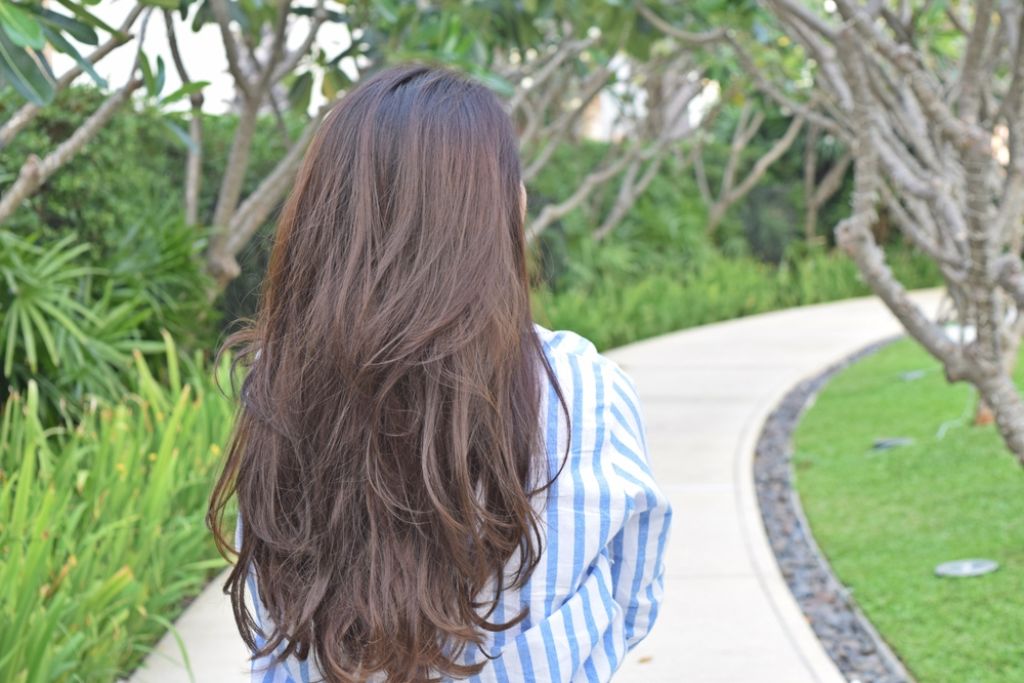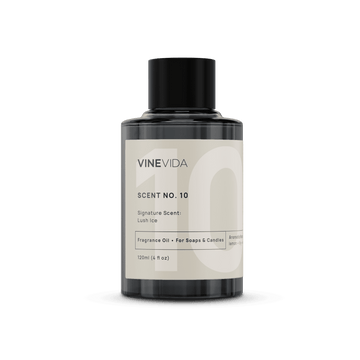Is lavender oil good for hair? Many users agree it is, and there are several studies to support that opinion. When lavender oil is used correctly, it can prevent and even reverse many common hair problems such as hair loss, thinning and falling hair, hair breakage, dry hair, itchy scalp, dandruff, damaged hair and so much more thanks to the linalool it contains. Lavender essential oil also nourishes and protects strands, starting from the scalp, which results in stronger hair. It also provides deep conditioning, leaving your hair shiny. And because its components work to nourish and hydrate, brittle strands are softened with consistent use.
Is Lavender Oil Good For Hair: Strengthening?
A study conducted in 1998 included patients with alopecia. The patients massaged a blend of essential oil and carrier oil into their scalps over time. The study revealed that 44% of the participants had increased hair growth compared to 6% of the control group. A variety of essential oils were used in this study, including lavender.
In 2016, a study with mice showed that the use of lavender oil made hair grow more quickly than normal. A blend of lavender oil was applied topically to the backs of the mice once per day, five times a week, for four weeks. Changes in the number of follicles, thickness, and length were all noted. It’s known that hair weakens due to anti-microbial growth on the surface of the scalp. The constituents in lavender oil have antiseptic qualities, which allow for increased blood circulation and can help strengthen and increase hair growth. (Lee, 2015)
When asking “is lavender oil good for hair” it might simply come down to this: stronger hair leads to increased growth, as well as improved hair health.
Is Lavender Oil Good for Hair: Improved Hair Health?

Lavender oil may also help those with an itchy scalp or dandruff, thanks to its components containing antimicrobial properties. You can mix fifteen drops of lavender essential oil with two tablespoons of almond or olive oil, and then heat it up in the microwave for about ten seconds. Please pay attention and ensure it’s not too hot before applying it to your scalp. Massage your scalp with the mixture and then put on a shower cap. Let it sit for about an hour and then wash as normal.
And speaking of itchy scalp, the lavender essential oil may also reduce the risk of head lice, especially when you add in tea tree oil. A 2011 study showed that a blend of both tea tree and lavender oil could be effective in suffocating live lice, therefore making them easier to remove. This is due to the constituents of both oils. (Barker, 211) Lavender was also shown to be a scent that repelled lice, although there may be better scents to use. In both instances, lavender oil’s constituents appear to help provide at least a natural removal and/or prevention method. (Greive, 2018)
With its wonderful aroma and soothing abilities, lavender oil also helps support a balanced nervous system. A 2012 study documented that participants who inhaled the scent were more relaxed and reported better moods. Massaging the oil into your scalp while relaxing in a hot shower just might be the ticket to a better night's sleep or a calm and focused morning. (Sayorwan, 2012)
Linalool in lavender is the main contributor to the floral aroma lavender is known for. The scent of lavender oil helps soothe stress and ease tension. Every day stress can be a contributing factor in thinning hair. And stress-related hair loss can lead to a vicious circle where seeing excess hair loss causes more stress, which then can cause even more thinning. Reducing stress overall can improve your general health and well-being, and that includes your hair health.
Related Content: Is Lavender Essential Oil Safe For Babies?
How Do You Use Lavender Oil In Your Hair?
Adding oil to your hair may seem strange, especially if you already have greasy hair. But with so many reported benefits and a variety of different applications, it’s worth experimenting with.
The first application is simply blending it with a carrier oil and massaging it into your scalp following a bath or shower. This is considered a hair serum. Maximum dilution should be 3% or 3 drops to one teaspoon. Allow the blend to sit for twenty to thirty minutes, breathing in the relaxing aroma while you wait. You can also wrap your hair in a towel and leave it overnight if you’d prefer. If you leave it overnight, you will want to make sure your hair is fully wrapped and protect your pillowcase and bedding. You will need to shampoo your hair, possibly twice, to ensure the blend is thoroughly out when you’re finished. This method can be used at least once a week. Using a serum with lavender oil can help prevent breakage, manage frizz, and prevent split ends. You can also purchase ready-made hair serums. Follow the directions on the bottle for usage. Some serums can be used daily, while others may be used weekly.
Lavender essential oil can also be added to your regular shampoo or conditioner. Just five drops of the product to one ounce of the product are all you need. Since the oil may eventually separate from the product, you could add a drop of oil to a dollop of shampoo each time you use it, rather than adding drops to the whole bottle. It is possible to make your shampoo as well. A recipe is included for you below.
You can also use a brand that already contains lavender oil. Look for products that list “lavender essential oil” or “lavender hydrolate” in their ingredients. Keep in mind that lavender hydrolat is not an oil, but rather lavender water, which is made through distillation. It is the water left behind, not the oil. It is possible to make your own shampoo as well. A recipe is included for you below.
Hair serum is another product you can find that contains lavender essential oil. Using a serum with lavender oil can help prevent breakage, manage frizz, and prevent split ends. Follow the directions on the bottle for usage. Some serums can be used daily, while others may be used weekly.
Lastly, a lavender hair mask once a week is another way to improve the look of your locks. Again, you can find products at your local store in the hair care aisle or make your own using the recipe down below.
Keep in mind that you should always use a carrier oil of some sort when applying any essential oil to your skin.
What Is The Best Carrier Oil To Use For Your Hair?
Not all carrier oils are created equally, and there are some that shouldn’t be used when adding essential oils to your hair. For instance, Olive oil is very nurturing and could be beneficial to the shaft, but as it is a heavier oil, those with straight or fine hair may feel it weighs their hair down a little too much.
The best carrier oil to use for all types of hair is Argan, made from the Moroccan Argan tree. Pumpkin seed oil is another contender, and also has the added benefit of promoting hair growth. Grapeseed oil is a great choice for people with fine hair as it is lightweight and absorbs quickly. Castor oil is another excellent choice, as well as Jojoba or Coconut oil.
Read More: What is the Best Carrier Oil?
Does Lavender Oil Have Side Effects?
Too much of any essential oil can be harmful, and lavender oil is no different. Before using lavender oil, test it on a small patch of your hand to see if you have an allergy to some of its components. If it goes red after a while, do not use it. Also, do not use it anywhere near your eyes.
It is also important to understand that although the components of lavender have healing properties, lavender may also dry your scalp. For greasy hair, it might be the perfect choice due to lavender’s relationship with sebum. Sebum provides lavender essential oil with an astringent quality, seemingly encouraging the sebaceous glands to stop producing oil. This relationship also means that if you already have a dry scalp, lavender is not the essential oil for you.
As with anything, too much of a good thing is simply too much. Be mindful of your use, and watch for any reactions you may have. It’s also important to pay attention to how often you use lavender essential oil. Overexposure can lead to sensitization. This might be skin sensitization, nausea, or headaches.
How Often Can You Use Lavender In Your Hair?
Lavender Oil is typically considered one of the gentler essential oils. But even though it is generally safe for use on your hair and scalp, if you haven’t tried it before, it’s recommended to use it lightly at first. Once you’re certain you’re not sensitive to it, you can follow the directions on the bottle if you’ve purchased something ready-made, or follow the directions on your DIY recipe. When purchasing products that contain lavender, be mindful of the directions for each product. And as with anything, if you begin to have skin irritation, you should discontinue use.
That being said, most recipes and products state you can use them several times a week, if not daily. Always follow the directions and any recommendations you may receive from medical professionals.
DIY Recipes For Lavender Essential Oil
Lavender Oil Hair Mask
-
- 1-2 Tablespoons of Argan Carrier Oil (Argania Spinosa)
- 3 drops of Rosemary Oil (Salvia Rosmarinus)
- 3 drops of Lavender Oil (Lavandula Angustifolia)
- 3 drops of Tea Tree Oil (Melaleuca Alternifolia)
-
- Mix and apply to dry hair. Rub into the areas that need it the most.
- Let sit for an hour under a shower cap.
- Rinse with warm water, and shampoo and condition as normal. You may need two rinses of shampoo; make sure the oil is out!
Note that drying your hair may take a few extra minutes because your hair is now hydrated!
Safety: Not suitable for use in the first 16 weeks of pregnancy. Rosemary can be problematic for people who have high blood pressure, epilepsy, or any kind of psychotic or delusory illness such as schizophrenia.
Mint Lavender Shampoo
- 1 (14 oz.) can coconut milk
- 1 ½ cups liquid Castile soap
- 30 drops Lavender Essential Oil (Lavandula Angustifolia)
- Place all the ingredients in a bowl and mix.
- Pour the mixture into a bottle and close tightly.
- Shake the bottle before each use.
Conclusion: Is Lavender Oil Good For Hair?
There is strong evidence that lavender oil might be a good addition to your hair care routine. It’s also good to know that you can purchase products containing lavender if you prefer not to make your own. The added benefit of lavender’s relaxing properties can also make your hair care routine feel like you’re at the spa. Not only that, but starting or ending your day in a more relaxed mood is a benefit anyone can support.
It’s important to understand that it may take a few times to see the results you’re looking for. You may also need to experiment to find the right carrier oil for your hair type. Remember to be mindful of any interactions, and enjoy the natural, sweet smell of lavender essential oil in your hair care routine.
References:
-
- https://www.ncbi.nlm.nih.gov/pmc/articles/PMC4843973/
- (PDF) The Effects of Lavender Oil Inhalation on Emotional States, Autonomic Nervous System, and Brain Electrical Activity
- The efficacy of Australian essential oils for the treatment of head lice infestation in children: A randomised controlled trial
- https://pubmed.ncbi.nlm.nih.gov/21864348/















